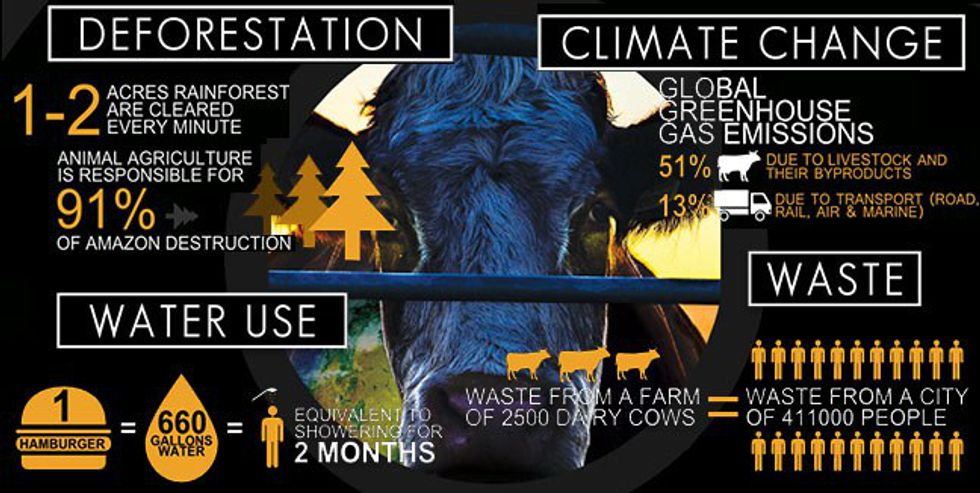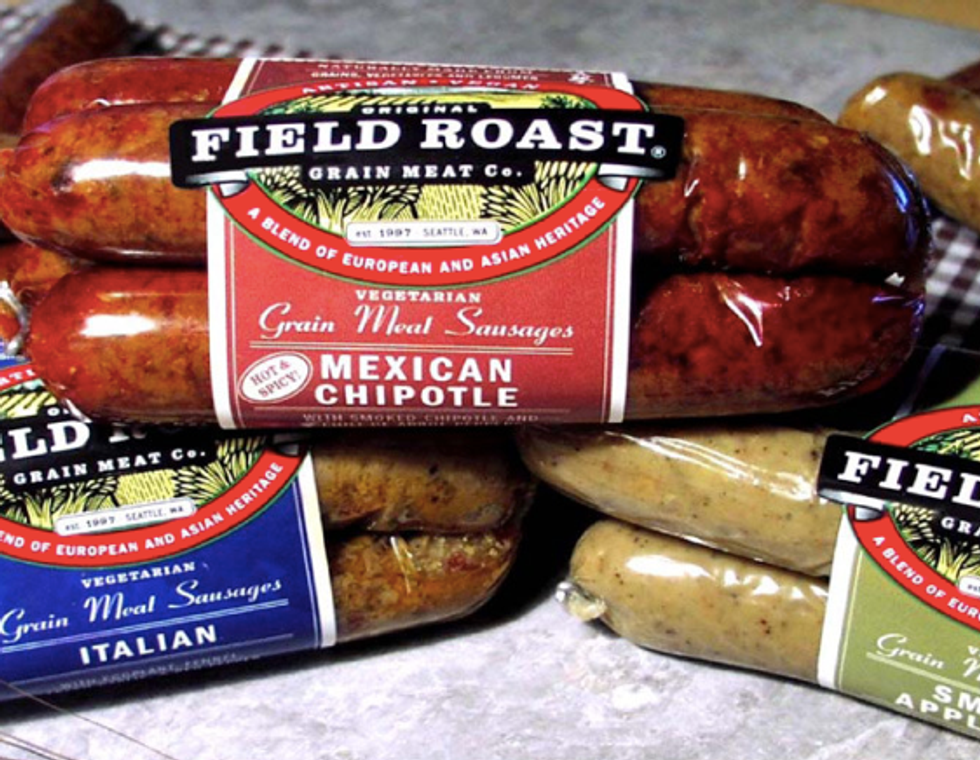Animal agriculture is the world’s most environmentally destructive industry. 51 percent of global greenhouse gas emissions are due to animal agriculture. That’s nearly four times more greenhouse gas than is produced by all the transportation in the world. Every minute one to two acres of rainforest are cleared to accommodate our hunger for meat. Furthermore, 91 percent of Amazon destruction is caused by animal agriculture. The destruction of rainforests results in the extinction of 110 species daily.
Concerned about our diminishing water supply? Well, chances are, shortening your showers won’t make any difference. 660 gallons of water are required to produce just one hamburger. That’s equivalent to two months of showers. One third of Earth’s fresh water goes to the meat and dairy industry. Similarly, one third of land is deserted by livestock, which covers 45 percent of the land on our planet.
Don’t care about the environment? How about your health? Nearly all the meat on the market today contains toxic amounts of hormones, antibiotics, and heavy metals. In fact, a dime-sized piece of meat contains billions of millions of hormone molecules. Animals are fed large doses of growth hormones and antibiotics to fatten them up and keep them from perishing from the filthy, disease-ridden conditions that would otherwise kill them. Dietary hormones cause dangerously expedited growth in children, while antibiotics make us resistant to antibiotic medicine, contributing to increased risk of illness and weakened immune systems. Additionally, ten billion animals slaughtered for food every year contain fecal bacteria or pathogens like E. coli. But there is a way to keep meat products in your diet without destroying your body, the environment, or the animals!
Queue SuperMeat, a cultured meat product made from animal cells, without harming the animals themselves. Stem cells from animals are incubated in a nutrient-rich media that allows the cells to divide. Eventually, this process produces muscle and fat tissues that become the meat that we can eat. Since SuperMeat is curated in a clean factory setting, its production is supervised, so there is no danger of additional hormones, antibiotics, or GMOs. SuperMeat also requires 99 percent less land, 90 percent less water, and produces 90 percent less greenhouse gases than factory farmed meat. Even better, no sentient beings are harmed in the process. SuperMeat also has the potential to solve world hunger. We have enough grain and soy to feed the entire world; however, a majority of the world’s crops are being fed to animals for slaughter. 925 million people around the world suffer from food insecurity. If everyone consumed meat like Americans, 3.2 billion people would have food to eat, while 3.7 billion would starve. SuperMeat, on the other hand, doesn’t require such ridiculous consumption of resources that causes so many people in the world to starve. It would be grown similar to most plant foods.
Finally, considering the fact that a lot fewer resources go into the production of cultured meat, the price tag would be substantially lower and more affordable to low income families.
Hopefully, SuperMeat products will be available on the market by 2020, but the company needs our help to get off the ground. By donating to SuperMeat, we can help contribute to a world in which animals aren’t slaughtered for our own appetites, families don’t have to starve, and our planet has enough resources to sustain life for many more years. Until then, I recommend adding as many plant-based meat alternatives to your diet as possible. While these products don’t taste exactly like the real thing, they are still delicious and far less violent, environmentally destructive, and carcinogenic than the real thing.

























